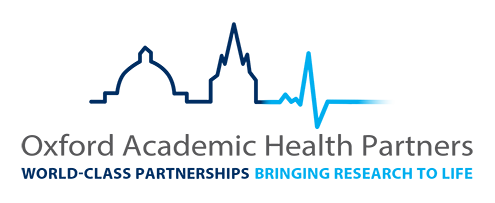A project set to be the world’s largest study into the effects of exercise on the successful treatment of children with cancer has begun, with scientists from Oxford Brookes University taking a leading role.
The five and a half year project, named FORTEe, has received €6.2 million (£5.4 million) funding from the EU Horizon programme and involves 16 European partners. FORTEe will research the experiences of at least 450 children aged between four and 21 years old and aims to generate evidence for an innovative patient-centred exercise treatment.
Promoting personalised exercise in oncology settings
FORTEe will promote exercise in oncology settings, supporting patients to increase muscle strength and cardiorespiratory fitness – which could help them fight childhood cancer by increasing therapy efficiency and survival rates.
Cancer is the leading cause of death by non-communicable diseases in children in Europe. During treatment, patients’ morbidity increases due to physical inactivity, cancer-related fatigue and reduced health-related quality of life. In adults, exercise in oncology settings has been found to improve tolerance and completion rates of cancer treatments – however in children, there is no strong evidence of how exercise affects outcomes.
From Spring 2022, researchers will go into nine hospitals across Europe to guide child cancer patients through exercises focusing on strength, flexibility, balance and endurance. Within the project, digital technologies including Augmented Reality (AR) will be developed to make exercise more effective and personalised.
App to improve patient exercise habits
Oxford Brookes University is leading the technology aspects of the project, developing an app for smartphones. AI will be used in the app to select rehabilitation exercises depending on the age and individual needs of the patient, taking into account possible side effects of cancer treatments and physical limitations.
Dr Peter Wright, who leads the research at Oxford Brookes, explains the benefits: “We believe exercise can counteract some of the side effects of the cancer treatment and improve the patient’s overall health and longer term comorbidities. Using AI with the app will fill a rehabilitation gap that currently exists, improving exercise habits and patient outcomes. The use of technology will make rehabilitation more accessible to patients, and longer term exercise training will be more effective, age-adapted and personalised. It will help create a new health care pathway from hospital all the way into reintegrating with PE at school and sports in other settings.
“The research project has the ambition to implement paediatric exercise oncology as an evidence-based standard in clinical care for all childhood cancer patients across the EU and beyond.”
Technology analyses digital movement
Alongside the one to one rehabilitation exercises and using the App, researchers are also introducing the use of a technology which analyses digital movement – Pixformance.
Stan Windsor, lecturer at Oxford Brookes University and the research project manager says: “Using technology to support patients with exercise, beyond seeing them in person, could really help these children to stick to rehabilitation programmes and improve their chances of recovery. Using the technology equipment in the hospital also poses a lower infection risk, which is particularly useful during the current situation of reduced contact owing to Covid-19.
“Patients will use this technology to self-correct their exercises and prepare for leaving the hospital. Designing a programme that uses technology in both a hospital and at home will, we hope, mean that the children adhere to their rehabilitation throughout all stages of their treatment.”
The Oxford Brookes technology based project will be implemented in five hospitals across Europe by January 2022.
The research project ‘Get Strong to Fight Childhood Cancer: An Exercise Intervention for Children and Adolescents Undergoing Anti-cancer Treatment’ is led by University Medical Center of the Johannes Gutenberg-University Mainz, Germany. The other partners are: Universitätsklinikum Heidelberg, Germany; Centre de Lutte Contre le Cancer Leon Berard, France; Deutsche Sporthochschule Cologne, Germany; Fondazione Monza e Brianza per il Bambino e la sua Mamma, Italy; Concentris Research Management GmbH, Germany; Fundatia Youth Cancer Europe, Romania; Region Hovedstaden, Denmark; Universidad Europea de Madrid, SAU, Spain; Universitaetsklinikum Essen, Germany; Fondazione IRCCS Istituto Nazionale Dei Tumori, Italy; Forma 3D Ltd, Slovenia; Univerzitetni Klinicni Center Ljubljana, Slovenia; Nurogames GMBH Germany; Pixformance Sports GmbH, Germany.
This project has received funding from the European Union’s Horizon 2020 research and innovation programme under grant agreement No 945153.
